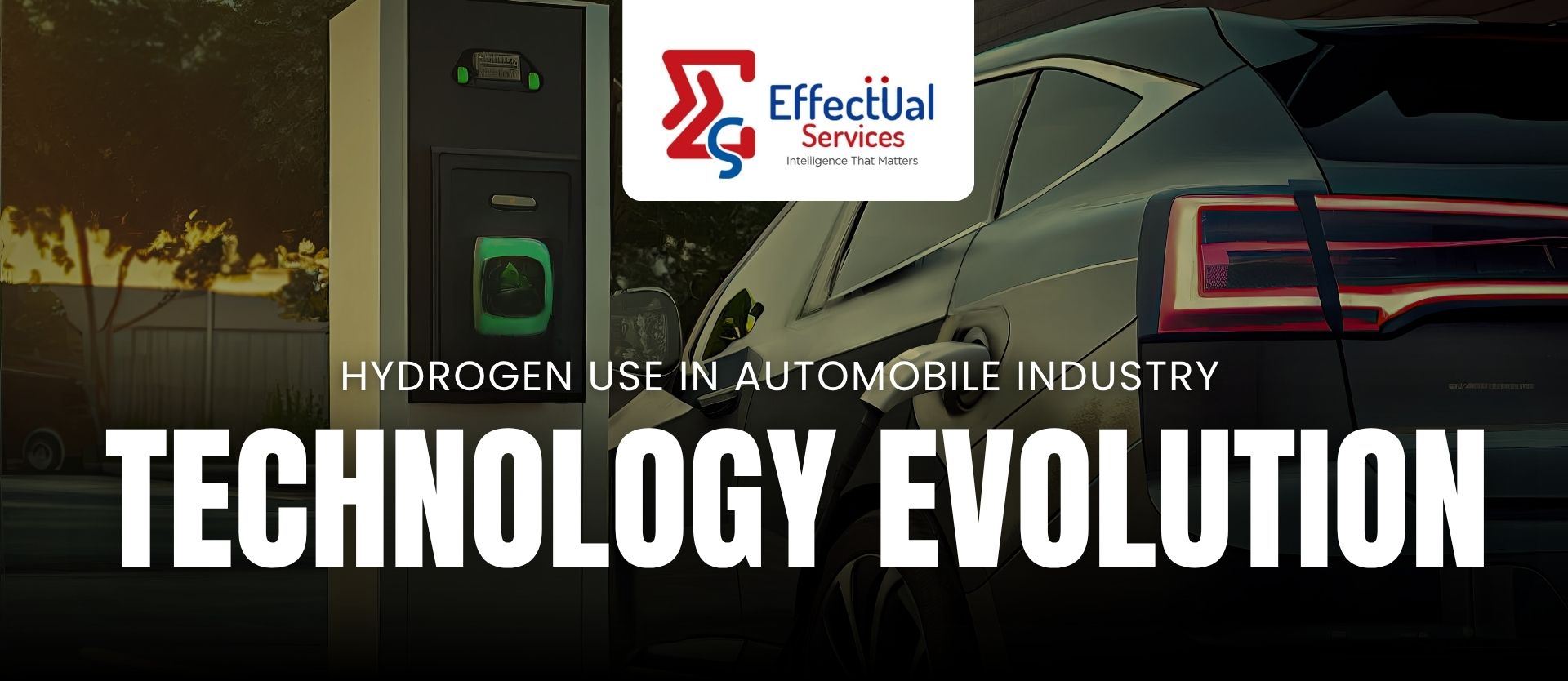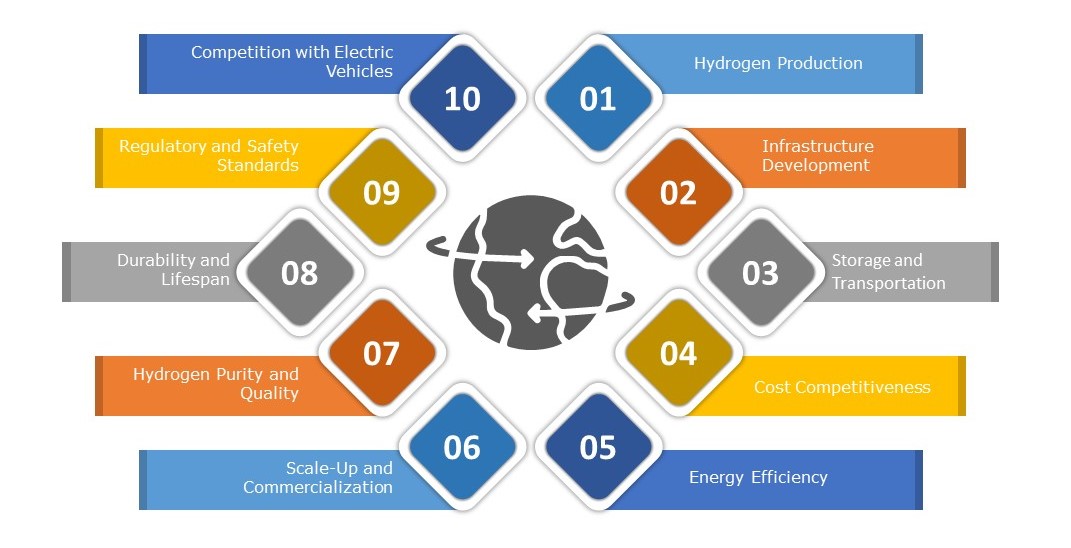Hydrogen Use in Automobile Industry: Technology Evolution

Hydrogen Use in Automobile Industry: Technology Evolution Hydrogen is garnering significant interest within the automotive sector as a promising substitute for conventional fossil fuels, specifically in the context of hydrogen fuel cell vehicles (FCVs) and hydrogen internal combustion engine (ICE) vehicles.
- Hydrogen Fuel Cell Vehicles (FCVs): Hydrogen fuel cell vehicles use hydrogen gas to generate electricity through a chemical reaction within the fuel cell. This electricity powers an electric motor that propels the vehicle. The only emission from a hydrogen fuel cell vehicle is water vapor, making it a zero-emission technology at the tailpipe.
- Hydrogen Internal Combustion Engine (ICE) Vehicles: Hydrogen internal combustion engine vehicles are similar to conventional gasoline vehicles in terms of their technology, except they use hydrogen as a fuel instead of gasoline. These vehicles burn hydrogen in an internal combustion engine to generate power.
Over the past years, the transportation sector has contributed a significant share of global carbon dioxide emissions. To counter this, various governments worldwide have introduced policies and incentives to drive research and development in green hydrogen production, hydrogen infrastructure, and fuel cell-powered electric vehicles. These initiatives aim to foster eco-friendly advancements in transportation technology.
Furthermore, a multitude of research and development initiatives, as well as strategic collaborations and partnerships involving vehicle manufacturers, original equipment suppliers (OEMs), and companies specializing in hydrogen and fuel cell technologies, have flourished. These endeavors provide valuable insight into the organization and reinforcement of this particular market segment.
In the last decade, the automotive sector shifted focus to battery technologies, but challenges in electric vehicles led to renewed interest in fuel cell technology. Patent filings for fuel cells grew at a CAGR of 18% from 2015 to 2021.
While hydrogen fuel cells hold promise for the automotive industry, there are several challenges that need to be addressed for their widespread adoption:

Read Also: Hydrogen Use in Automobile Industry: Objective and Scope
Technology Evolution
KR101887701B (Hyundai Motor, Filed on 2012-10-26): Hydrogen for vehicles is stored in a costly ultra-high-pressure tank, which poses stability issues and expensive infrastructure for filling stations. To address these concerns, an onboard hydrogen generation system via aluminum-caustic soda reaction is aimed for, aiming to eliminate high-pressure tank drawbacks. The objective of the present invention is to provide a hydrogen- Free on-board hydrogen production system.
WO2023/128748 (NanoMalaysia Berhad, Filed on 2021-12-30): The current hydrogen-type electric vehicles come with a number of problems. These problems include always needing charging stations, slow charging times, costly battery changes, and not having enough places to refuel. This invention presents a system that combines hydrogen and another type of energy to power a specific kind of electric vehicle. The present invention comprises multiple energy storage subsystems and a hydrogen generation system. The hydrogen gas is generated on-board an hydrogen hybrid electric vehicle, converting electricity via the fuel cell which powers the motor. Furthermore, the utilization of an ultracapacitor enhances the speed of the charging process and extends the lifespan of the battery.
CN116198354B (Tianjin New Hydrogen Power Technology Co ltd, Filed on 2023-04-27): With the rapid growth in the number of vehicles, the charging pile requirements for electric vehicles have significantly improved, and in particular, the contradiction of the charging pile needs on motorways on holidays is becoming more noticeable. The majority of conventional charging devices in the prior-art are installed in fixed locations, such as charging stations or specially designed charging pile areas, which take up a lot of space and cannot be moved while in use. As a result, the quantity is constrained, and it is challenging to meet peak application requirements.
An objective of the various implementations of the present invention is to offer a mobile portable hydrogen energy fuel cell charging device, which addresses the issues that the current charging device takes up a lot of space, is scarce, and cannot be transported. The hydrogen fuel cell technology is effective, environmentally friendly, and lightweight, and it can be easily pulled by an electric car to enable charging while driving. As a result, the paradox between the rise in electric vehicles and the dearth of charging stations should be resolved.
About Effectual Services
Effectual Services is an award-winning Intellectual Property (IP) management advisory & consulting firm offering IP intelligence to Fortune 500 companies, law firms, research institutes and universities, and venture capital firms/PE firms, globally.
Through research & intelligence we help our clients in taking critical business decisions backed with credible data sources, which in turn helps them achieve their organisational goals, foster innovation and achieve milestones within timelines while optimising costs.
Solutions Driving Innovation & Intelligence
Enabling Fortune 500's, R&D Giants, Law firms, Universities, Research institutes & SME's Around The Globe Gather Intelligence That
Protects and Nurtures Innovation Through a Team of 250+ Techno Legal Professionals.


